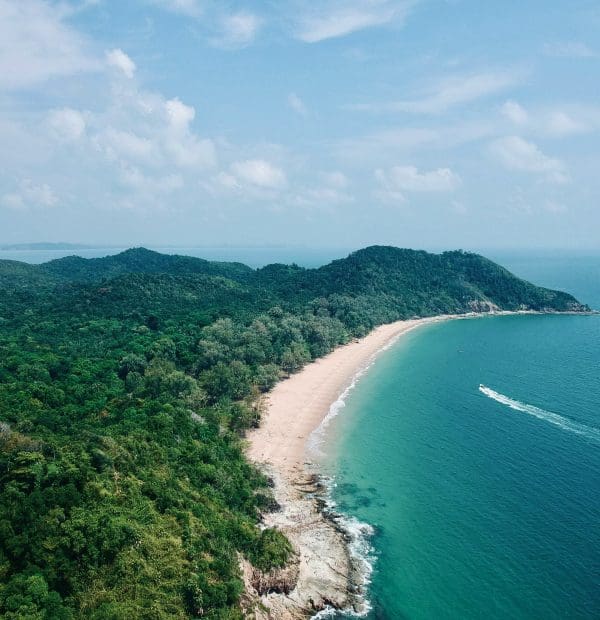In this article, we’ll take you through the top dive sites in Malaysia, delving into what makes each spot unique and alluring. We’ll highlight the marine species you can expect to encounter, offer insights into photography opportunities, and assess the suitability of each site for different levels of diving proficiency. Additionally, we’ll provide essential information on water temperatures, visibility, currents, tides, and local regulations to ensure you’re fully prepared for your next diving adventure in Malaysia.
Top Dive Sites
Sipadan Island
Description: Often heralded as one of the world’s premier dive destinations, Sipadan Island is an oceanic island rising 600 meters from the seabed. The island is renowned for its sheer vertical walls and waters teeming with life, delivering a veritable underwater wonderland for divers.
Marine Species: On your dives here, expect to encounter a rich abundance of marine life including:
- Green and hawksbill turtles
- White tip and grey reef sharks
- Barracudas
- Schooling jacks
- Bumphead parrotfish
Unique Encounters: One of Sipadan’s standout features is the famous “Barracuda Point” where divers can drift alongside a swirling vortex of barracudas. Additionally, turtle caverns offer an eerie yet fascinating glimpse into nature’s resting places for these majestic creatures.
Photography: The vibrant coral gardens and dramatic drop-offs provide excellent backdrops for photography. Wide-angle lenses are ideal for capturing large pelagics and dramatic wall dives, while macro lenses promise a chance to capture intimate details of the smaller reef inhabitants.
Suitability: Sipadan is best suited for intermediate to advanced divers due to the strong currents and deep drop-offs. Beginners may need to gain experience before tackling some of the more challenging sites here.
Layang-Layang
Description: Layang-Layang, also known as Swallow Reef, is an atoll about 300 kilometers off the coast of Sabah in the South China Sea. Known for its pristine coral reefs and clear blue waters, it’s a diver’s paradise, offering some of the best big fish diving in Malaysia.
Marine Species: Dive here to see a spectacular variety of marine life such as:
- Scalloped hammerhead sharks (seasonal)
- Grey reef sharks
- Manta rays
- Dolphins
- Various species of jacks and barracudas
Unique Encounters: Layang-Layang’s isolation contributes to its incredible biodiversity. One of the most exhilarating experiences here is the seasonal migration of hammerhead sharks, which form large schools around April and May. Additionally, encounters with manta rays gliding gracefully through the deep blue are unforgettable.
Photography: Given the pelagic species and the phenomenal coral walls, both wide-angle and macro photography are beneficial. The visibility, which often exceeds 30 meters, allows for strikingly clear images of large schools of fish and expansive underwater vistas.
Suitability: The diving conditions at Layang-Layang, with its often strong currents and depths, are more appropriate for advanced divers. It’s essential to have good buoyancy control to navigate these waters safely.
Mabul Island
Description: In close proximity to Sipadan, Mabul Island is celebrated for its exceptional muck diving opportunities. Rather than dramatic walls and clear blue waters, you’ll find sandy slopes and artificial reefs, teeming with an array of fascinating critters.
Marine Species: Unlike the pelagic action of nearby Sipadan, Mabul focuses on smaller yet equally intriguing creatures such as:
- Frogfish
- Pygmy seahorses
- Blue-ringed octopuses
- Mandarinfish
- Various nudibranch species
Unique Encounters: Mabul’s muddy seabed and artificial habitats like sunken boats create the perfect environment for macro enthusiasts. Night dives reveal creatures like bobtail squids and flamboyant cuttlefish, providing mesmerizing views not seen during daylight hours.
Photography: Mabul is a haven for macro photographers, with exceptional opportunities to capture detailed images of the myriad of colorful and bizarre critters. A macro lens is a must-have to capture the intricate details of these small subjects.
Suitability: Mabul is suitable for divers of all levels, from novices to experienced muck diving aficionados. The relatively shallow depths and typically calm waters make it an excellent spot for beginners to improve their skills while marveling at the bountiful marine life.
Dive Considerations
Water Temperature: Malaysia enjoys tropical waters with pleasant water temperatures ranging between 27°C to 30°C (80°F to 86°F). However, during the monsoon season, temperatures may slightly dip, which divers should keep in mind when planning their dives.
Visibility: Visibility can be a diver’s best friend or their biggest challenge. Malaysia boasts visibility ranging from 10 to 40 meters (33 to 131 feet), depending on the location and time of year. On the east coast, around the Perhentian Islands and Redang, you can expect some of the best visibility, especially from March to October.
Currents and Tides: Currents can vary from gentle drifts to strong surges. Sites like Sipadan are known for their sometimes powerful currents, which can bring in pelagic species but might challenge less experienced divers. In contrast, areas like the Tioman Islands have more manageable currents, making them ideal for beginners. Always check the local tide charts and consult with local dive operators to gauge current conditions.
Safety Tips:
- Stay Hydrated: Tropical climates can lead to dehydration. Drink plenty of water before and after dives.
- Use Sun Protection: Apply reef-safe sunscreen to protect your skin from harsh UV rays.
- Monitor Your Air: Always keep an eye on your air supply, especially when currents are strong.
- Follow Local Guidelines: Respect local marine laws, stay within established dive profiles, and avoid touching marine life.
- Emergency Procedures: Know the nearest recompression chamber and emergency contacts for each dive location.
Regulations: Malaysia has several regulations in place to protect its underwater environments:
- Permit Requirements: Diving in certain areas, like Sipadan, requires a special permit due to daily limits on diver numbers.</
- Marine Park Fees: Some dive sites within Marine Parks might require an entrance fee, which goes toward conservation efforts.
- No-Take Zones: Many areas enforce strict no-take policies to protect marine ecosystems, so don’t collect any souvenirs from the sea.
- Diving Certifications: Ensure you have the appropriate diving certifications, especially for advanced or technical dives.
- Respect Wildlife: Always maintain a safe distance from marine creatures, avoid chasing them, and never disturb their natural behaviors.
Whether you’re a beginner or a seasoned diver, Malaysia’s waters promise unforgettable encounters and breathtaking underwater landscapes. The combination of diverse marine life, excellent visibility, and well-preserved ecosystems makes these dive sites truly special. Don your gear and dive into Malaysia’s underwater wonders – a treasure trove waiting to be explored.
“`


Leave a Reply